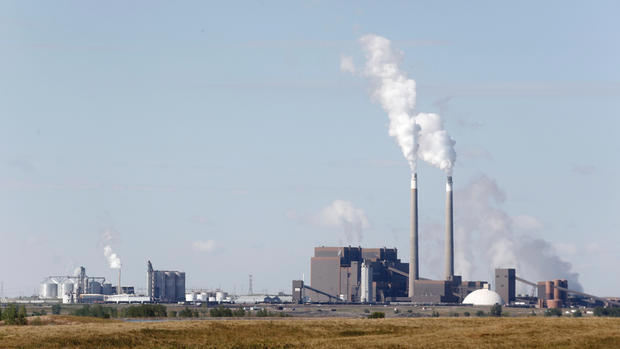Shortages Are What Happens When the Government Tries to Dictate Outcomes in the Marketplace

Great River Energy's Coal Creek Station on Wednesday, August 19, 2015, in Underwood, N.D. (Logan Werlinger/Grand Forks Herald)
The politicians always think they know best.
Energy policy is no departure from this simple truth. The politicians use all manner of policy – from tariffs to regulatory red tape to subsidies and mandates – to dictate where we get our power.
In Australia, much like here in America, public policy aimed at pushing that country away from coal and toward renewable energy policy has been promoted for years. Only now there’s an energy shortage in that country, and while some are blaming gas exports, it seems pretty clear that the real culprit is government policies which eroded diversity in that country’s energy sources:
Resource-rich Australia has an energy crisis, one that offers lessons for America as it prepares to vastly increase natural-gas shipments abroad.
Australia now exports so much liquefied natural gas, or LNG, it may overtake No. 1 exporter Qatar within several years. It exported 62% of its gas production last year, according to the BP Statistical Review of World Energy.
Yet its policy makers didn’t ensure enough gas would remain at home. As exports increased from new LNG facilities in eastern Australia, some state governments let aging coal plants close and accelerated a push toward renewable energy for environmental concerns. That left the regions more reliant on gas for power, especially when intermittent sources such as wind and solar weren’t sufficient.
That’s definitely a lesson for policymakers here in America.
For decades now American energy policy has been shaped toward driving us toward energy sources like wind and solar, and away from coal. That policy is beginning to reach critical mass, with coal power capacity in America declining and plants closing.
But what happens if something unexpected happens in the energy markets? What if we find ourselves short of power, without cheap and reliable coal to fall back on?
Markets are dynamic. Regulations are static. We put far too much faith in politicians and bureaucrats when it comes to dictating which path the markets ought to take.




